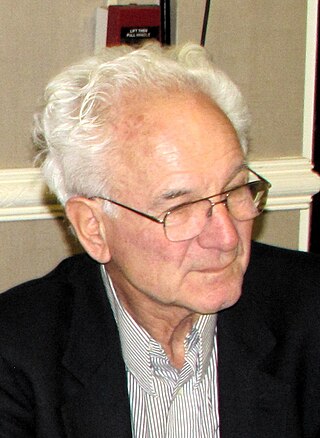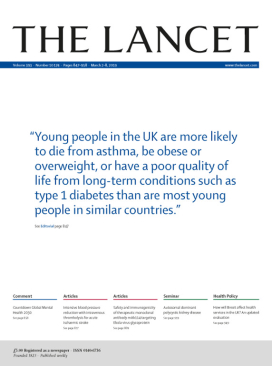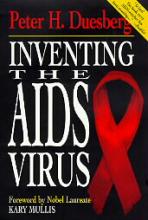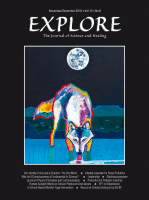
Peter H. Duesberg is a German-American molecular biologist and a professor of molecular and cell biology at the University of California, Berkeley. He is known for his early research into the genetic aspects of cancer. He is a proponent of AIDS denialism, the claim that HIV does not cause AIDS.

HIV/AIDS denialism is the belief, despite conclusive evidence to the contrary, that the human immunodeficiency virus (HIV) does not cause acquired immune deficiency syndrome (AIDS). Some of its proponents reject the existence of HIV, while others accept that HIV exists but argue that it is a harmless passenger virus and not the cause of AIDS. Insofar as they acknowledge AIDS as a real disease, they attribute it to some combination of sexual behavior, recreational drugs, malnutrition, poor sanitation, haemophilia, or the effects of the medications used to treat HIV infection (antiretrovirals).

The Lancet is a weekly peer-reviewed general medical journal and one of the oldest of its kind. It is also one of the world's highest-impact academic journals. It was founded in England in 1823.

JAMA (The Journal of the American Medical Association) is a peer-reviewed medical journal published 48 times a year by the American Medical Association. It publishes original research, reviews, and editorials covering all aspects of biomedicine. The journal was established in 1883 with Nathan Smith Davis as the founding editor. Kirsten Bibbins-Domingo of the University of California San Francisco became the journal editor-in-chief on July 1, 2022, succeeding Howard Bauchner of Boston University.

Luc Montagnier was a French virologist and joint recipient, with Françoise Barré-Sinoussi and Harald zur Hausen, of the 2008 Nobel Prize in Physiology or Medicine for his discovery of the human immunodeficiency virus (HIV). He worked as a researcher at the Pasteur Institute in Paris and as a full-time professor at Shanghai Jiao Tong University in China.
Science by press conference or science by press release is the practice by which scientists put an unusual focus on publicizing results of research in the news media via press conferences or press releases. The term is usually used disparagingly, to suggest that the seekers of publicity are promoting claims of questionable scientific merit, using the media for attention as they are unlikely to win the approval of the scientific community.
David Frederick Horrobin was a British-Canadian entrepreneur, medical researcher, author and editor. He is best known as the founder of the biotechnology company Scotia Holdings and as a promoter of evening primrose oil as a medical treatment, Horrobin was founder and editor of the journals Medical Hypotheses and Prostaglandins, Leukotrienes and Essential Fatty Acids, the latter journal co-founded with his then graduate student Morris Karmazyn.
The Journal of the Royal Society of Medicine is a peer-reviewed medical journal. It is the flagship journal of the Royal Society of Medicine with full editorial independence. Its continuous publication history dates back to 1809. Since July 2005 the editor-in-chief is Kamran Abbasi, who succeeded Robin Fox who was editor for almost 10 years.

Pride Chigwedere, a Zimbabwean national, is a Harvard trained physician-scientist working in global health. He is most notable for leading a team of Harvard researchers who demonstrated that South African President Thabo Mbeki's AIDS policies led to more than 300 000 deaths. While South Africa's policies were condemned by many, Chigwedere's contribution was in developing and applying methods to quantify the impact of the policies thus demonstrating the calamitous consequences of AIDS denialism. Generalized, he developed an approach for evaluating public health practice and highlighted the need to develop a framework for accountability in public health. Drawing from the analogy with medicine, he has proposed the concept of public health malpractice to capture negligence that causes harm as a useful first step towards accountability in public health. A response to Chigwedere's work by AIDS denialists led by Peter Duesberg was initially published by the non-peer-reviewed journal Medical Hypotheses followed by a retraction because of poor quality of data, undeclared conflicts of interest, and potential effects on global health.

Inventing the AIDS Virus is a 1996 book by molecular biologist Peter Duesberg, in which the author argues that HIV does not cause AIDS. Duesberg contends that HIV is a harmless passenger virus and that AIDS is caused by unrelated factors such as drug abuse, antiretroviral medication, chronic malnutrition, poor sanitation, and hemophilia. The unambiguous scientific consensus is that HIV causes AIDS and that Duesberg's claims are incorrect. Duesberg received a negative response from the scientific community for supporting AIDS denialism, misrepresenting and ignoring the scientific evidence that HIV causes AIDS, and for relying upon poor logic and manipulation. The book was also the subject of an authorship dispute with one of his graduate students.
Scholarly peer review or academic peer review is the process of having a draft version of a researcher's methods and findings reviewed by experts in the same field. Peer review is widely used for helping the academic publisher decide whether the work should be accepted, considered acceptable with revisions, or rejected for official publication in an academic journal, a monograph or in the proceedings of an academic conference. If the identities of authors are not revealed to each other, the procedure is called dual-anonymous peer review.
Bruce Graham Charlton is a retired British medical doctor who was visiting professor of Theoretical Medicine at the University of Buckingham. Until April 2019, he was Reader in Evolutionary Psychiatry at Newcastle University. Charlton was editor of the controversial and not-conventionally-peer reviewed journal Medical Hypotheses from 2003 to 2010.
In South Africa, HIV/AIDS denialism had a significant impact on public health policy from 1999 to 2008, during the presidency of Thabo Mbeki. Mbeki criticized the scientific consensus that HIV is the cause of AIDS beginning shortly after his election to the presidency. In 2000, he organized a Presidential Advisory Panel regarding HIV/AIDS including several scientists who denied that HIV caused AIDS.
Big Pharma conspiracy theories are conspiracy theories which claim that pharmaceutical companies, especially large corporations, act in sinister and secretive ways, such as concealing effective treatments, or even intentionally causing and worsening a wide range of diseases, in pursuit of profitability, or for other nefarious reasons. Some theories have included the claim that natural alternative remedies to health problems are being suppressed, the claim that drugs for the treatment of HIV/AIDS are ineffective and harmful, the claim that a cure for all cancers has been discovered but hidden from the public, claims that COVID-19 vaccines are ineffective, and that alternative cures are available for COVID-19. In most cases the conspiracy theorists have blamed pharmaceutical companies' search for profits. A range of authors have shown these claims to be false, though some of these authors nevertheless maintain that other criticisms of the pharmaceutical industry are legitimate.

Explore: The Journal of Science & Healing is an interdisciplinary journal that publishes papers on alternative medicine six times per year. It was established in 2005 and is published by Elsevier. The executive editor is faith healing advocate Larry Dossey, and the co-editors-in-chief are hypnotherapist, acupuncturist, and herbalist Benjamin Kligler, an associate professor at the Albert Einstein College of Medicine, and parapsychologist Dean Radin. The journal has been described as a "sham masquerading as a real scientific journal" which publishes "truly ridiculous studies", such as Masaru Emoto's claimed demonstration of the effect of "distant intention" on water crystal formation.
John P. Moore is an American virologist and professor at Cornell University's Weill Cornell Medicine college, known for his research on HIV/AIDS. He previously worked at the Aaron Diamond AIDS Research Center. A former section editor of the Journal of General Virology, he is an outspoken critic of HIV/AIDS denialism, including the work of Peter Duesberg.
Journalology is the scholarly study of all aspects of the academic publishing process. The field seeks to improve the quality of scholarly research by implementing evidence-based practices in academic publishing. The term "journalology" was coined by Stephen Lock, the former editor-in-chief of the BMJ. The first Peer Review Congress, held in 1989 in Chicago, Illinois, is considered a pivotal moment in the founding of journalology as a distinct field. The field of journalology has been influential in pushing for study pre-registration in science, particularly in clinical trials. Clinical trial registration is now expected in most countries. Journalology researchers also work to reform the peer review process.
Lola L. Cuddy is a Canadian psychologist recognized for her contributions to the field of music psychology. She is a professor emerita in the Department of Psychology at Queen's University in Kingston, Ontario.
Jacques Benveniste was a French immunologist born in Paris. In 1979, he published a well-known paper on the structure of platelet-activating factor and its relationship with histamine. He was head of allergy and inflammation immunology at the French biomedical research agency INSERM.
Brainspotting is a psychotherapy technique that attempts to help people process psychological trauma or other problems via eye movements. Practitioners of this technique use a pointer to direct a client’s eye gaze in order to send signals to the brain to resolve psychological or physical concerns. Brainspotting has not been rigorously studied and has frequently been characterized as a pseudoscience or fringe medicine.








